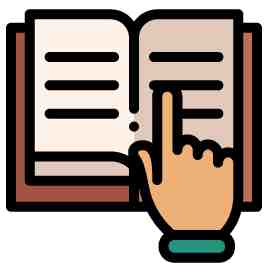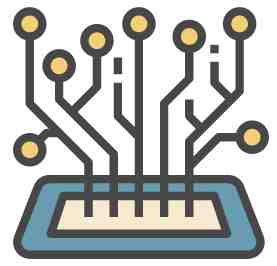A adjective is a word which qualifies or adds to meaning of a noun or a pronoun(an old form for adjective was ad noun).
Adjectives may be divided into 3 main classes.
Descriptive adjectives
Good, bad, hard, stupid, soft, old, this, small, fat, dirty, young, pale, red, hot, ugly ...
Adjective of quantity
- Definite (including, numerals): one, seven, five, twenty, second, booth, double...
e.g.: Both plays scored three
goal in the second match - Indefinite: all, any, few, many, much, several, some
e.g.: We met several boys who caught some fish
Adjective of distinction
- Demonstrative:
This, that, these
e.g.: This is my bag - Interrogative:
which, what, whose
e.g.: which book do you want? - Distributive:
Each, every, either ... or, neither ... nor
e.g.: He could go home by either ways
The tall gentleman a blue coast.
Little Jim was a delicate boy with pale cheek.
The weather was wet and foggy.
The ugly old woman spoke in a loud cracked voice
Comparative of adjective
Adjectives can have 3 degrees positions, comparative, superlative.
The positive
Simply it is descriptive describing a noun or pronoun
e.g.: Short holiday, beautiful rose, handsome boys, intelligent teacher, old woman, young girls, dirty classroom, small bag, nice dress, tall man.
Comparative
Is used in comparing two things be creature, thing or one group with another. Here we say shorter than, older than, younger than, smaller than etc...
We can also say: More beautiful than more noticeable than. If the positives is usually formed by adding er to the positive e.g.: fast - farter; old - older; small - smaller; thin – thinner.
The superlative
The superlative is used in comparing 3 or more thing can say:
The tallest of the 4
The smallest girl in class
The wisest men.
It is usually formed by adding est to the word if it is short adjectives of 3 or more syllables from their superlative by adding most to the adjective.
Adjective of 3 syllables or more and most adjective of two syllables form their comparatives by placing more in front of the word, and the superlative by placing most in front.
Some adjectives have quite different words for the comparative and superlative.
Small or short syllable words
|
Positive |
comparative |
Superlative |
|
big |
bigger |
biggest |
|
fast |
faster |
fastest |
|
great |
greater |
greatest |
|
clever |
cleverer |
cleverest |
|
narrow |
narrower |
narrowest |
|
hot |
hotter |
hottest |
|
late |
later |
latest |
|
long |
longer |
longest |
|
small |
smaller |
smallest |
|
thin |
thinner |
thinnest |
|
heavy |
heavier |
heaviest |
Different word for comparative and superlative
|
Positive |
comparative |
Superlative |
|
bad |
worse |
worst |
|
far |
farther |
farthest |
|
good |
better |
best |
|
little |
less |
least |
|
many |
more |
most |
|
much |
more |
most |
Longer word in the positive
|
Positive |
comparative |
Superlative |
|
beautiful |
more beautiful |
most beautiful |
|
careful |
more careful |
most careful |
|
prestigious |
more prestigious |
most prestigious |
|
comfortable |
more comfortable |
most comfortable |
|
ignorant |
more ignorant |
most ignorant |
|
handsome |
more handsome |
most handsome |




